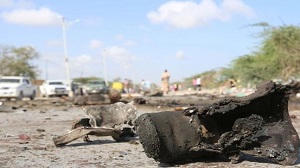Guterres described them as crimes against humanity that have left enduring scars on Africa and its diaspora.
Speaking at the Africa Dialogue Series on Friday under the theme “justice through reparations,” Guterres highlighted that Africa remains a continent of “boundless energy and possibility,” yet continues to be held back by the lingering consequences of historical exploitation.
“For too long, the colossal injustices inflicted by enslavement, the transatlantic slave trade and colonialism have been left unacknowledged and unaddressed,” he said, reiterating the UN’s position that these atrocities require redress.
The Secretary-General pointed to the ongoing movement for reparatory justice, which is gaining global traction. This momentum is being reflected in the Second Decade for People of African Descent (2025–2035), following a decade that saw more than 30 UN Member States revise legislation to better combat racial discrimination.
“We point to the poisoned legacies of enslavement and colonialism, not to sow division but to heal them,” Guterres said, warning that the systems of racism and economic exploitation rooted in that era continue to harm African nations and people of African descent.
He argued that the end of colonial rule did not bring liberation from the entrenched global structures built to marginalise Africa. “When African countries gained their independence, they inherited a system built to serve others, not them,” he noted.
President of the UN General Assembly, Philémon Yang, also addressed the gathering, stressing the importance of education in addressing these historic wrongs. He pointed to initiatives such as the Ark of Return memorial at the UN Headquarters in New York and the integration of this history into school curricula.
“Knowledge of our true history can serve as a powerful compass in our onward march towards progress,” Yang said.
--UN/ChannelAfrica--













